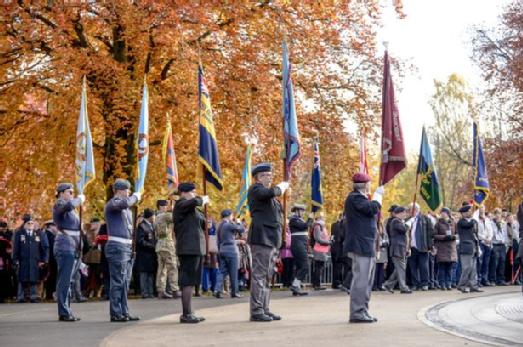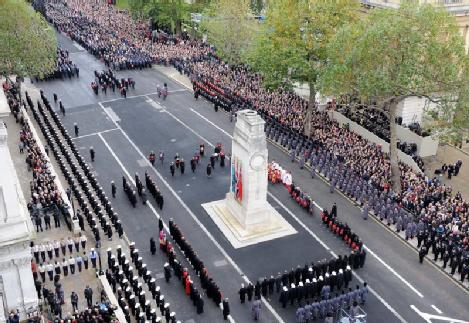Dr Joseph Haigh, ESRC Postdoctoral Fellowship
Vicarious Remembrance: Identity, (In)Security, and the Politics of British War Commemoration
"We won the Second World War!", "My Grandfather fought in the Second World War, therefore...".
Contemporary British political discourse abounds with such declarations. Yet people who make these statements were often not born at the time of such events and lack first-hand military experience. Therefore, these declarations are inherently vicarious.
Even as such claims have proliferated in British national life, and their (in)authenticity has become a topic of political debate - even satire - in recent years, these dynamics have received little attention from scholars of global politics.
Living vicariously through a military past
In October 2021, Dr Joseph Haigh from the Department of Politics and International Studies will begin an ESRC Postdoctoral Fellowship building upon his doctoral research exploring the political psychology of living vicariously through military ancestors.
The project will be situated around the following questions:
-
What motivates people to live vicariously through military ancestors?
-
What are the different forms that this behaviour can take?
-
What are the political and normative stakes of such claims?

Remembrance Sunday, Coventry 2019. The research will explore the political psychology of living vicariously through the triumphs of our military ancestors.

Remembering the Fallen. Crowds gather at the Cenotaph in Whitehall, London.
Drawing from international relations, philosophy, historiography and psychology, he will argue that individuals, corporations and political movements have increasingly emphasised ancestral connections to past wars to assuage militarised existential anxieties.
This emphasis on past military victories also helps support claims of authentic national belonging and - more provocatively - imperial entitlement in global affairs.
Contemporary militarism and vicarious remembrance
During the Fellowship, Dr Haigh will develop a book and conduct a series of public engagement activities that will provide a conceptual vocabulary for making sense of, and reflecting upon, the political and normative limits of vicarious remembrance.
The project will also provide opportunities to broaden this research agenda to consider how Britons live vicariously through contemporary militarism too. This will be explored through new research into public attitudes towards 'lawfare' and allegations of war crimes directed at the British forces during the Afghanistan war since it began in October 2001.
